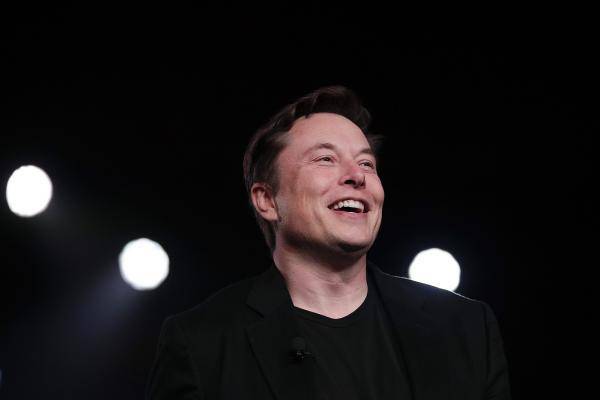Elon Musk has built two industrial behemoths— Tesla and SpaceX—revolutionizing two industries along the way. But that’s not all he has done to change global industry.
Musk has also given manufacturing companies a new word: gigafactory.
The practical definition of a gigafactory is a larger, modern manufacturing facility for products that are designed to lower global carbon emissions.
The latest example of the adoption of gigafactory comes from hydrogen technology company Plug Power (ticker: PLUG). “Welcome to the Rochester Innovation Center, home of the world’s first and largest [proton exchange membrane] fuel cell and electrolyzer gigafactory,” said a Plug spokesperson at the company’s hydrogen symposium held Thursday.
Plug doesn’t make battery-powered electric vehicles, however, like Tesla (TSLA). Plug is trying to disrupt the heavy-duty trucking industry by replacing diesel fuel and engines with hydrogen gas and fuel cells.
Other car companies, however, have followed Tesla’s lead. Earlier in 2021, Volkswagen (VOW.Germany) said it was building six gigafactories in Europe to produce EV batteries.
Ford Motor (F), on the other hand, announced in late September that it is building a so-called mega-campus in Tennessee.
Giga is simply a prefix meaning 10 raised to the power of nine—or in other words, one followed by nine zeros. So one giga dollar, for instance, equals $1 billion. (Elon Musk’s net worth is more than $200 billion, or about 200 giga dollars.)
The original gigafactory was Tesla’s battery factory in Nevada, built in partnership with Panasonic (6752.Japan). That plant was designed to have the ability to produce gigawatt hours worth of battery cells each year to power Tesla EVs. That’s probably why the prefix giga was added to it. (A single gigawatt hour of battery cells can power about 10,000 EVs.)
Tesla has kept that prefix, and now, along with giga-Nevada, it has giga-Shanghai, giga-Texas, and giga-Berlin.
EVs and the battery cells that power them replace gasoline-powered cars. EV batteries are charged with electricity from the grid, but a good portion of electricity in the U.S., roughly 20%, is now generated using renewable resources such as wind and solar power.
Hydrogen fuel cells like those produced by Plug Power generate electricity using hydrogen gas. Hydrogen doesn’t create greenhouse gases when burned or used in a fuel cell. However, if the hydrogen gas is produced by splitting water using one of Plug’s electrolyzers, along with renewable electricity, then no carbon dioxide is emitted anywhere along the way.
Carbon dioxide is the main gas blamed for global climate change.
Coining the term gigafactory probably falls lower on Musk’s resume compared with his other accomplishments, however. He is, of course, CEO of Tesla, which is is valued at more than $800 billion, making it the most valuable car company on the planet by a wide margin. Toyota Motor (TM) is number two, valued at a little less than $300 billion.
And Musk also heads up the spacecraft company SpaceX, which is valued at $100 billion in private markets, making it the fourth most valuable aerospace and defense company in the world, trailing Boeing (BA), Raytheon Technologies (RTX), and Lockheed Martin (LMT).
Corrections & Amplifications
Elon Musk’s net worth is more than $200 billion, or 200 giga dollars. An earlier version said 2 giga dollars.
SOURCE : Marketwatch




